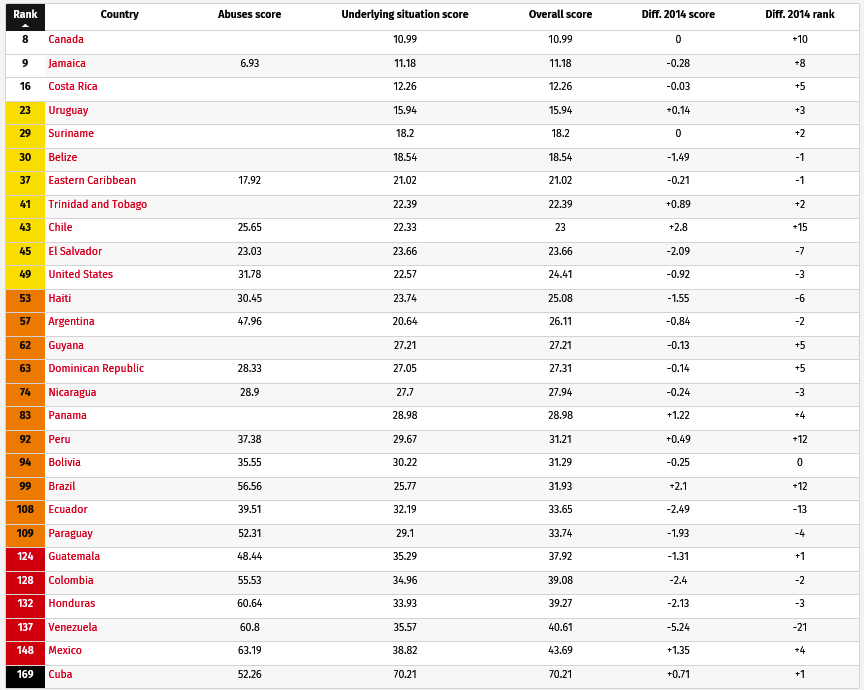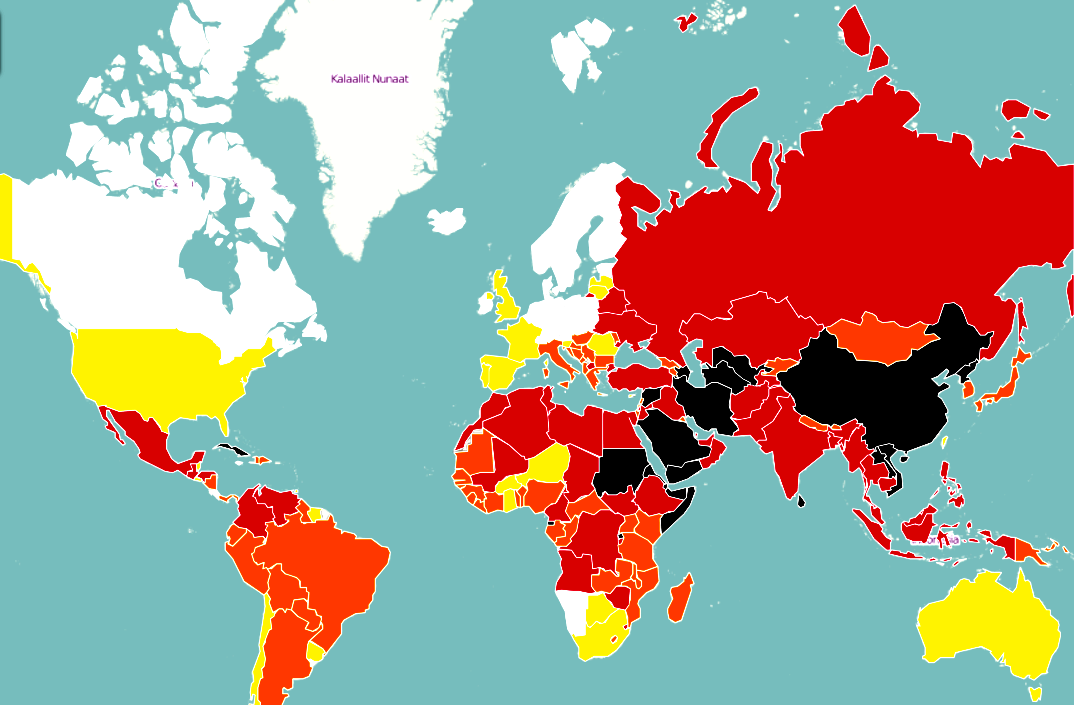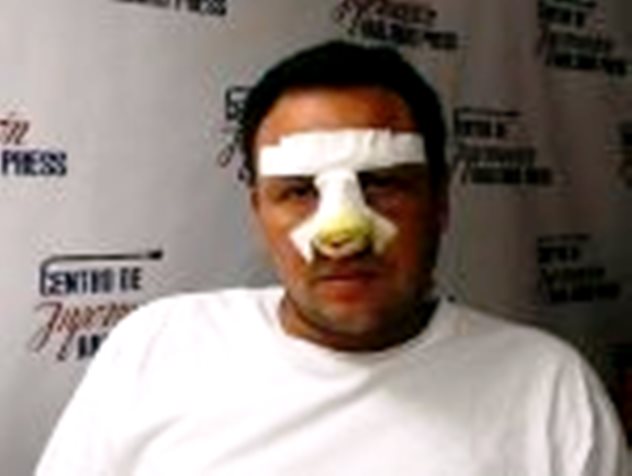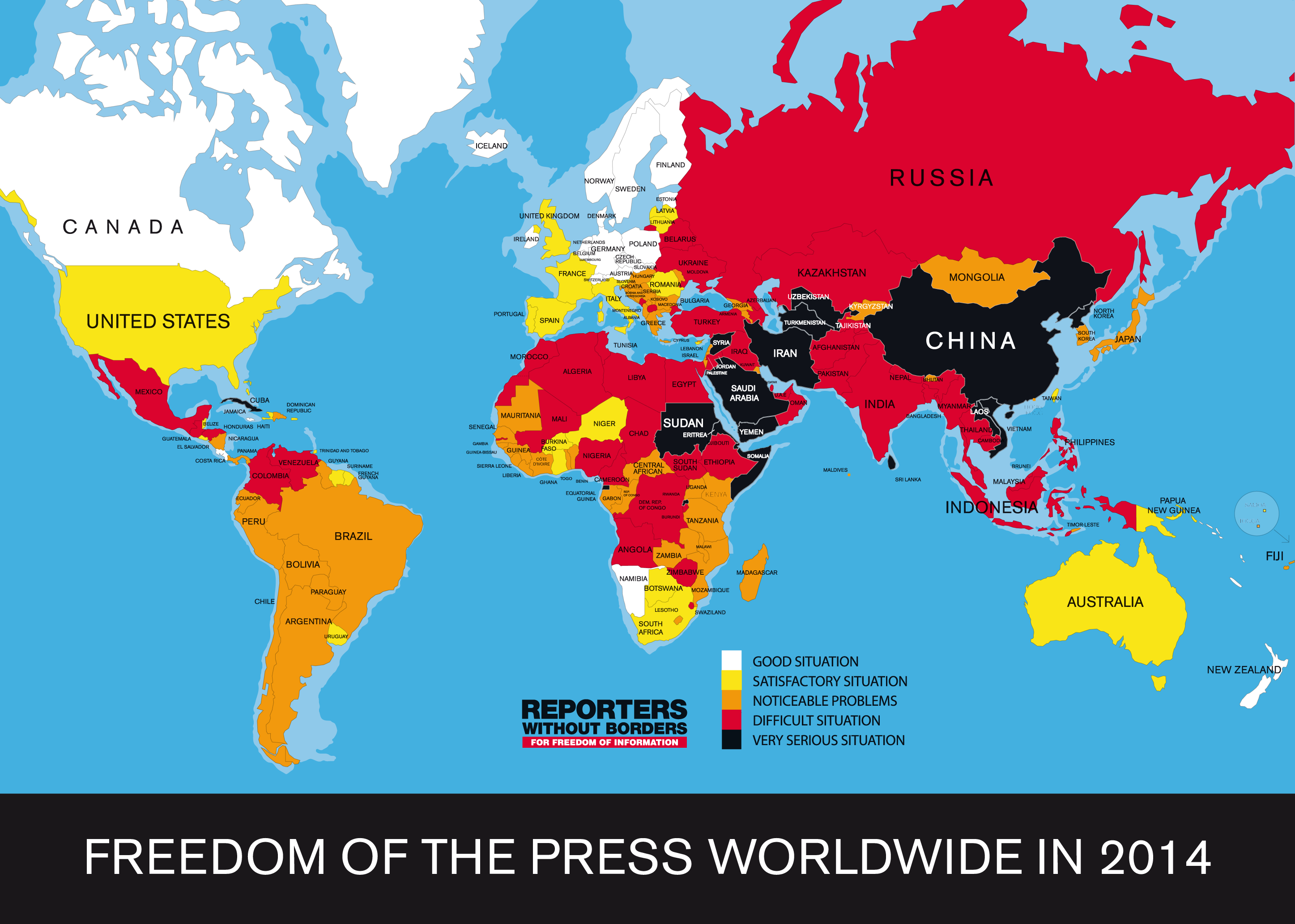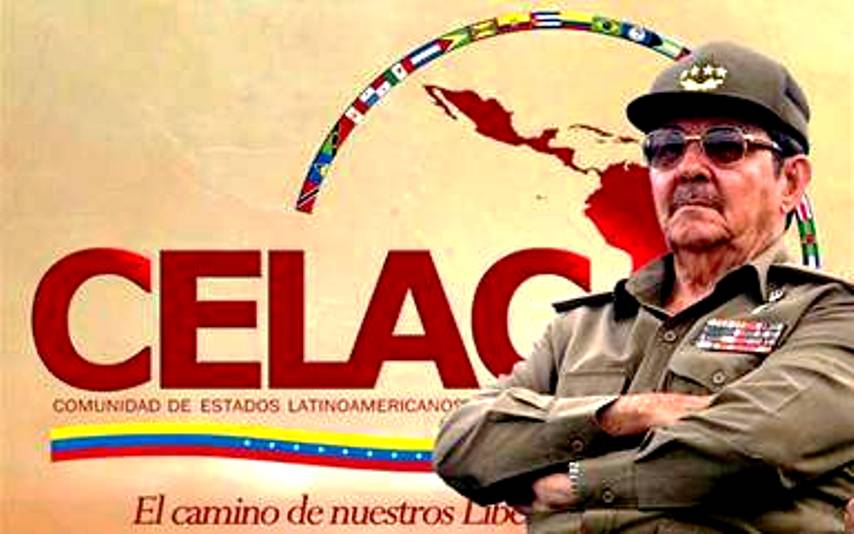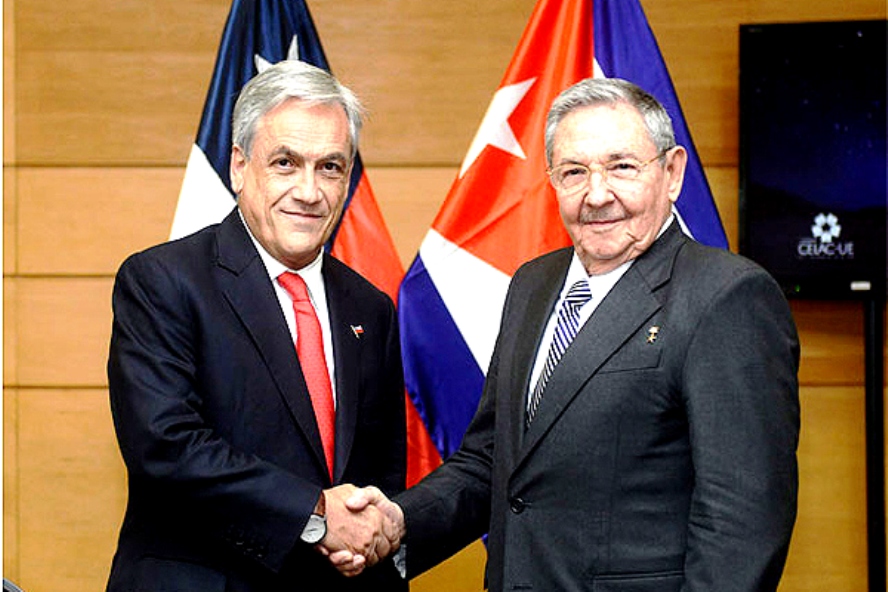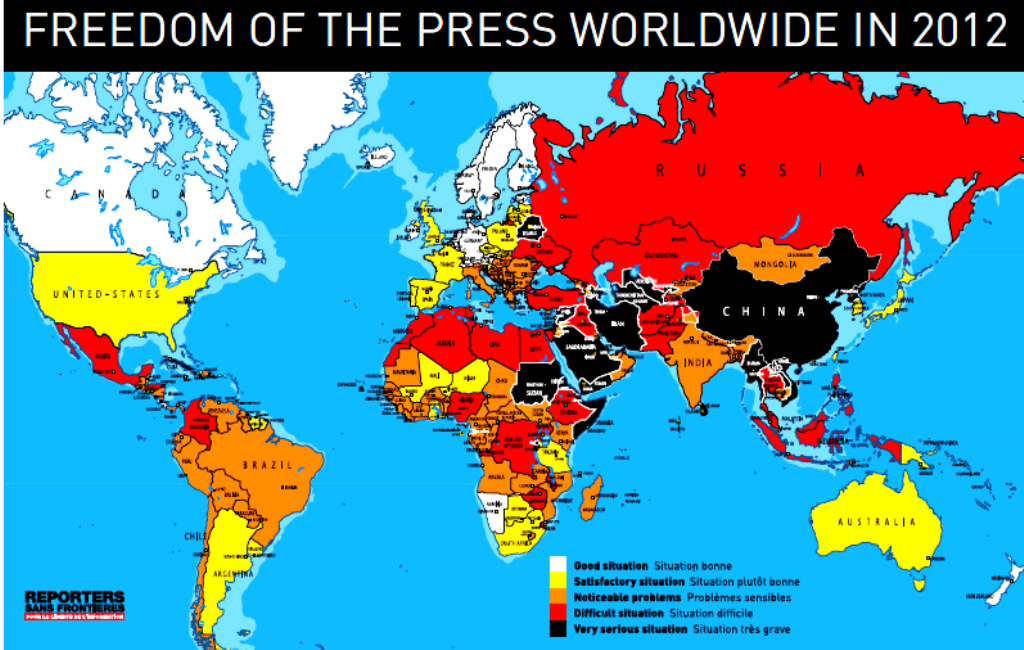May 3, 2017.
Original Report here: https://rsf.org/en/ranking
 A self-styled socialist republic with a single party, Cuba continues to be Latin America’s worst media freedom violator year after year. Fidel Castro’s death in 2016 effectively changed nothing. The Castro family, which has ruled since 1959, maintains an almost total media monopoly and tolerates no independent reporting.
A self-styled socialist republic with a single party, Cuba continues to be Latin America’s worst media freedom violator year after year. Fidel Castro’s death in 2016 effectively changed nothing. The Castro family, which has ruled since 1959, maintains an almost total media monopoly and tolerates no independent reporting.
Arbitrary arrests and imprisonment, threats, smear campaigns, confiscation of equipment, and closure of websites are the most common forms of harassment. These practices are ubiquitous and are buttressed by an arsenal of restrictive laws. Unless forced to flee the island to protect themselves or to keep working, the few independent bloggers and journalists must cope with drastic restrictions on Internet access.

December 2, 2016
FIDEL CASTRO’S HERITAGE: FLAGRANT MEDIA FREEDOM VIOLATIONS
Castro has been hailed as one of the leading figures of the 20th century and father of the Cuban people in many of the thousands of messages that followed the announcement of his death. But behind the revolutionary’s romantic image lay one of the world’s worst press freedom predators. The persecution of dissidents was one of the distinguishing features of his 49 years in power, and constitutes the harshest aspect of his heritage.
The current situation in Cuba speaks to this. Cuba continues to be one of the worst countries in Latin America for media freedom and ranks 171st out of 180 countries in RSF’s World Press Freedom Index. Fidel Castro’s brother Raúl, who replaced him in 2007, is now also on RSF’s press freedom predator list.
Cuba’s constitution permits only state-controlled media outlets. Independent news agencies and bloggers who try to dispute the state’s monopoly of news and information are subjected to intimidation, arbitrary arrest and draconian censorship.
As a result, independent news agencies have often had no choice but to go into exile and post their news reports online from abroad. This is far from ideal because Internet access within Cuba is still very problematic (only 5% of households have internet access).
Finally, with two journalists currently jailed, Cuba continues to be one of the few western hemisphere countries where reporters can still be found behind bars. Venezuela and Panama are the other two.
But the situation was much worse under Fidel Castro himself. The father of the Cuban revolution imposed a climate of censorship and used often violent methods to prevent the circulation of any news and information at variance with that provided by the state media.
The persecution peaked in 2003. In March of that year, the authorities arrested more than 75 dissidents including 27 journalists, who were given summary trials and sentences ranging from 14 to 27 years in prison for talking about democracy in Cuba.
They included RSF’s then correspondent, Ricardo González Alfonso, who ended up spending seven years in prison. There were several waves of arrests during this period, dubbed the “Black Spring.” Unauthorized journalists were targeted and accused of collaborating with the United States if their reporting referred to Cuba’s dissidents, human rights violations or the everyday lives of Cubans.
The persecution continued during the ensuing years and in 2007, when Fidel Castro was about to hand over to his brother, Cuba was the world’s second biggest prison for journalists, with a total of 25 held. Prison conditions were appalling and torture was often reported by the families of Cuba’s detained journalists and dissidents.
Many different methods were deployed against Cuba’s independent news providers including arbitrary arrests, beatings and phone tapping. But permanent censorship was one of the constants of the Castro years, both before and after the Black Spring.
Ever since its creation in 1985, RSF has constantly denounced these abuses, using awareness campaigns, protests and international mobilization. Several of our contributors and correspondents have been threatened or imprisoned. They include Roberto Guerra Pérez, who was sentenced to two years in prison in 2005 on a charge of disturbing public order and was released in 2007.
Guerra bravely continued his fight for media freedom, launching an independent news agency called Hablemos Press in 2009. But the Cuban police harassed him and his reporters and repeatedly prevented them from working. After receiving anonymous death threats, he had no choice but to go into exile in October 2016 in order to ensure his and his family’s safety.
The battle waged by RSF and many other local and international NGOs must go on so that exile is one day no longer inevitable. But for the time being, the day-to-day existence of Cuba’s journalists is still marked by fear and self-censorship.
Cuba’s journalists currrently fear that the father of the revolution’s death will be accompanied by a new crackdown. This must not be allowed to happen. Instead, it must open the way to a new era of pluralism and freedom of opinion.


